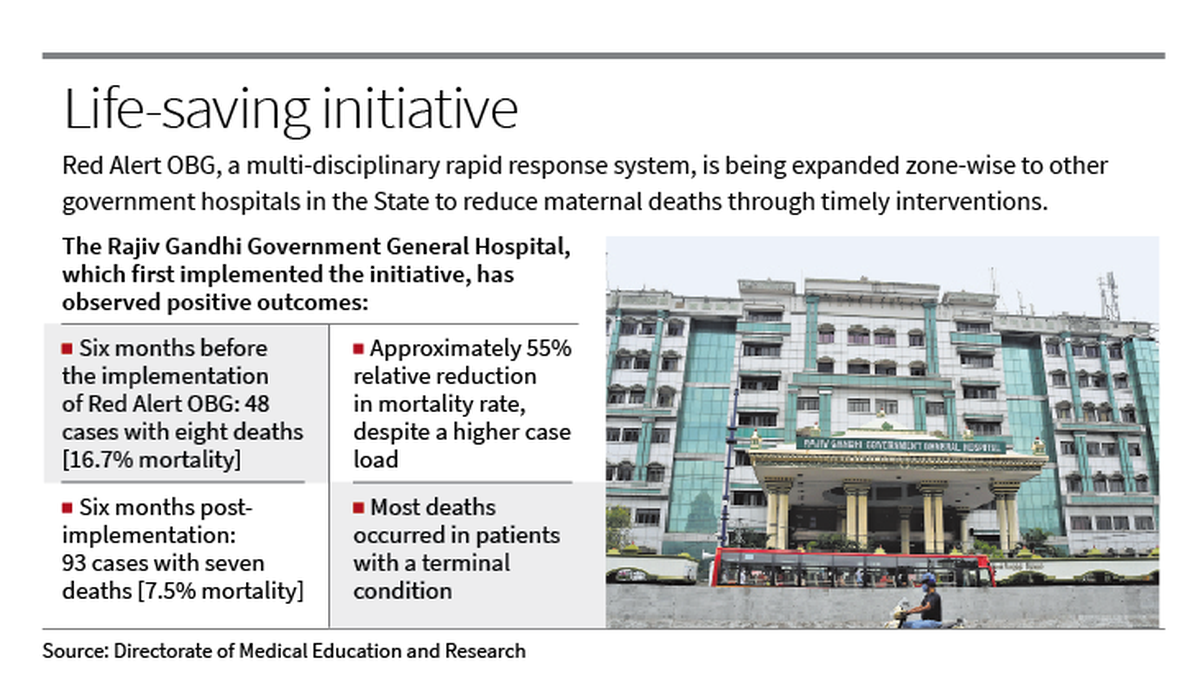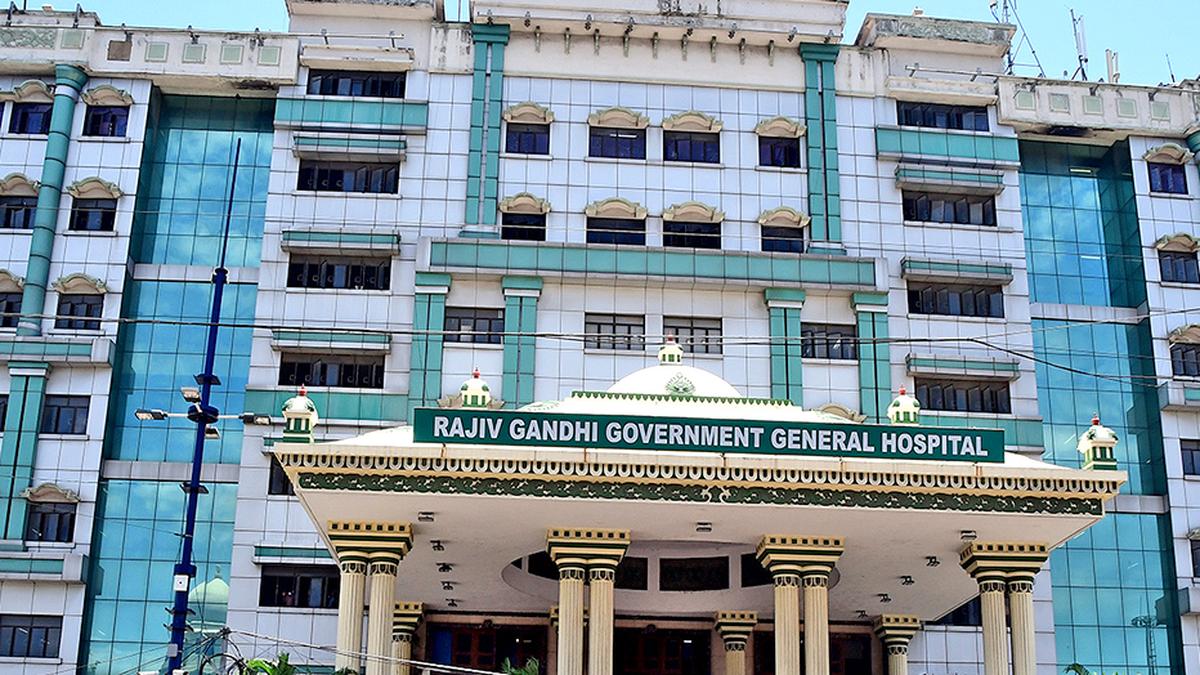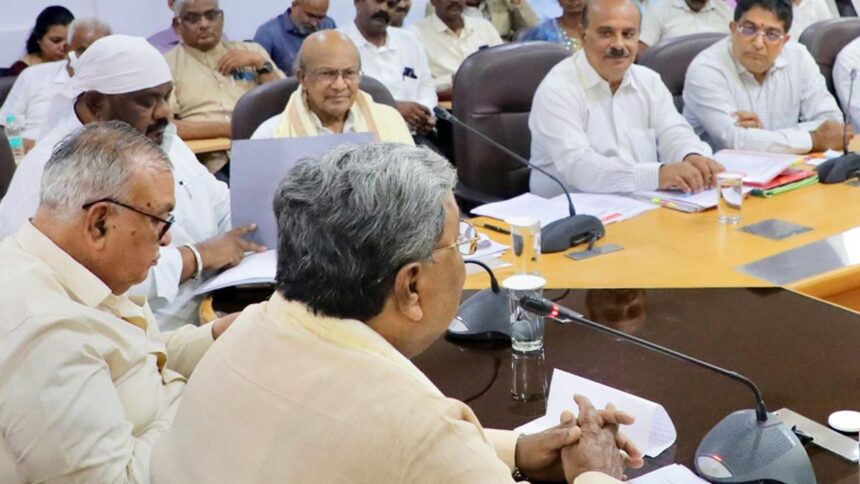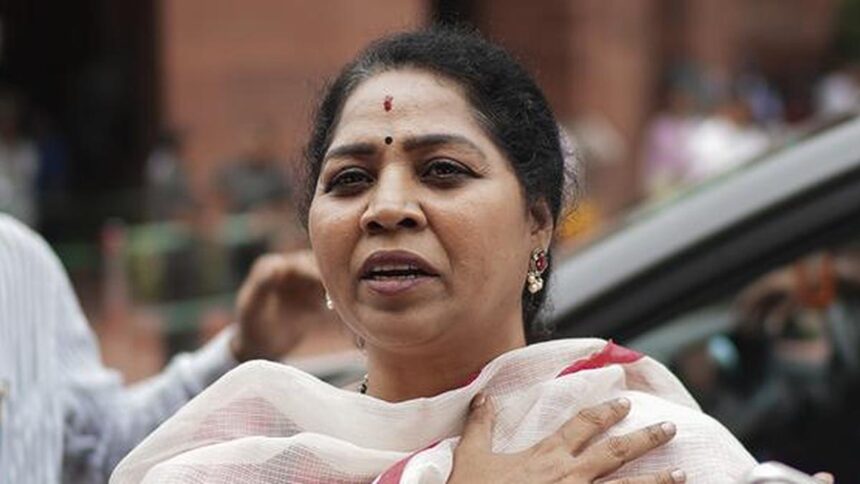
The rapid response system was pioneered at Rajiv Gandhi Government General Hospital with critically ill pregnant women referred from the Institute of Obstetrics and Gynaecology, Egmore, and Government Kasturba Gandhi Hospital for Women and Children.
| Photo Credit: FILE PHOTO
After a multi-disciplinary rapid response system to reduce maternal deaths yielded positive outcomes at Rajiv Gandhi Government General Hospital (RGGGH), the Health Department is scaling up the initiative — known as Red Alert OBG — zone-wise. The department has introduced it at the Government Kilpauk Medical College Hospital, and at the government medical college hospitals in Tirunelveli and Thanjavur.
Building on the model’s success, the Health Department plans a State-wide roll-out to strengthen emergency obstetric care and improve maternal health outcomes at government medical college hospitals. Officials of the Directorate of Medical Education and Research said the rapid response system — pioneered at RGGGH with critically ill pregnant women referred from the Institute of Obstetrics and Gynaecology (IOG), Egmore, and Government Kasturba Gandhi Hospital (KGH) for Women and Children — has helped transform emergency obstetric care, thereby reducing maternal deaths.
Higher caseload
This is what an analysis of pre-and post-implementation of the system from December 2024 at RGGGH showed. “Six months before its implementation, there were 48 cases with eight deaths (16.7% mortality). In the six months post-implementation, the number of cases increased to 93 with only seven deaths (7.5% mortality) — a 55% relative reduction in mortality rate, despite a higher caseload. Most deaths occurred in patients arriving in terminal condition. Many critically ill pregnant women have been saved,” said Director of Medical Education E. Theranirajan, who is also the special officer for improving maternal and child health activities under the National Health Mission for DME institutions.

Going ahead with zone-wise implementation, the directorate has developed a hub-and-spoke model connecting government medical college hospitals in the specific zone to an apex institution in that zone. Under the system, a WhatsApp group is formed. It comprises dean, heads of obstetrics-gynaecology (OB-GYN), anaesthesia, general medicine of the apex hospital along with heads of OB-GYN, anaesthesia, general medicine, in-charge of Intensive Medical Care Unit (IMCU) of hospitals attached to the zone. Details of critically ill pregnant women admitted to the attached hospitals are posted in the group for which the clinical care heads suggest appropriate care.
Assessment on arrival
At RGGGH, the process begins with pre-arrival intimation from IOG/KGH. The casualty team coordinates with ambulances and duty medical officers to ensure that patients are transferred to RGGGH within 45 minutes. On arrival, patients are assessed by a professor/assistant professor of Emergency Medicine, with immediate stabilisation of airway, breathing, and circulation. Blood investigations are initiated at casualty, and patients are shifted to IMCU within 30-45 minutes. There are instant updates in the WhatsApp group, linking all specialists for coordinated, multi-disciplinary input. At the IMCU, intensivists and critical care teams continue management, doctors said.
“It has facilitated timely intervention with inputs from the respective specialist. For instance, a 24-week pregnant woman had developed weakness of all limbs and was referred from the Tiruvallur government hospital to RGGGH. While there was a differential diagnosis, the neurologist examined her and found her to be malnourished, and suspected thiamine deficiency. An MRI found hyperintense brain lesions, hallmark of Wernicke encephalopathy. She was immediately started on treatment and recovered well. So, we are able to identify the primary problem in a patient and treat appropriately, leading to faster recovery,” Dr. Theranirajan said.
Published – August 26, 2025 09:43 pm IST





















